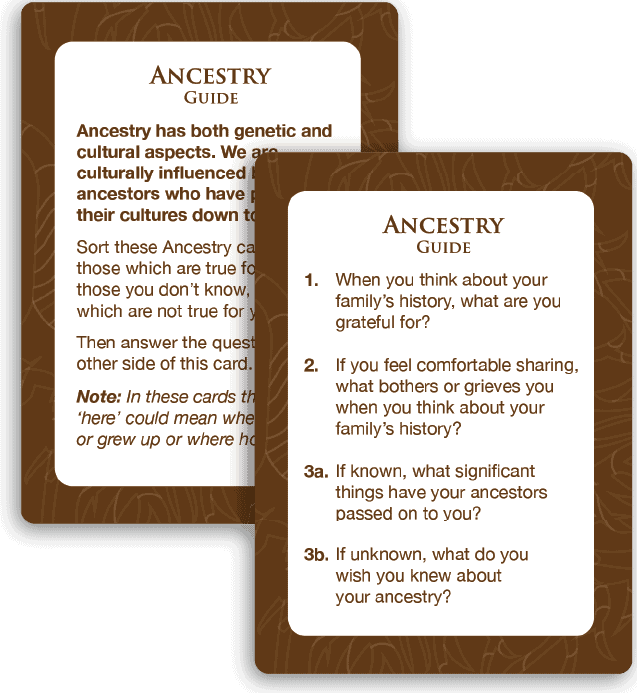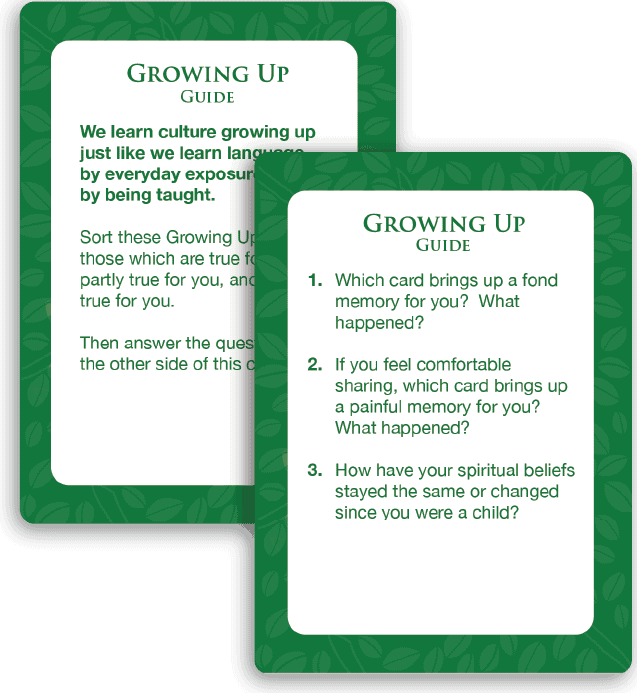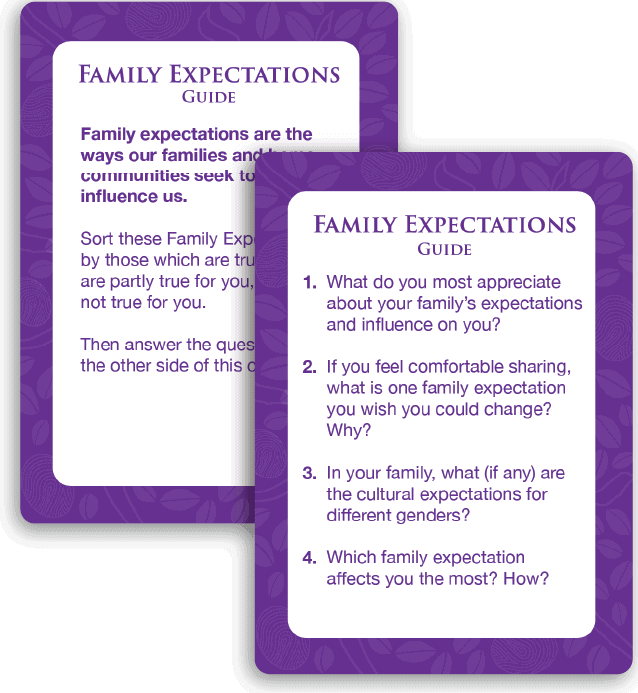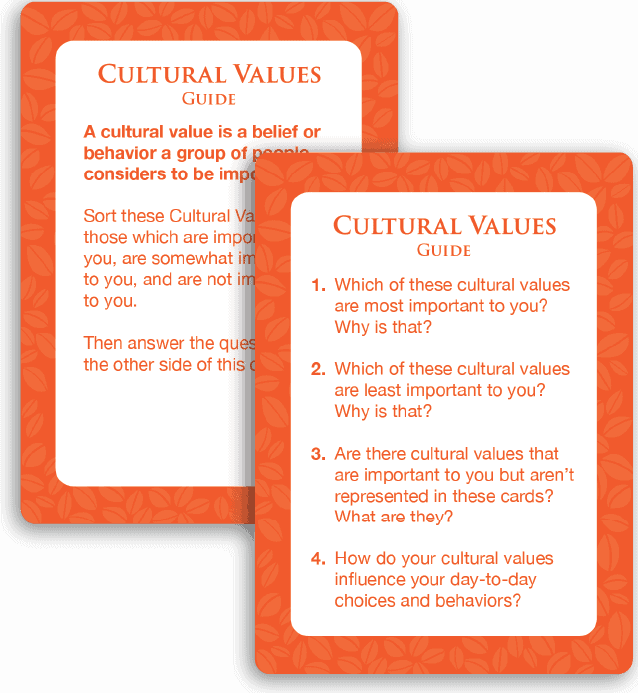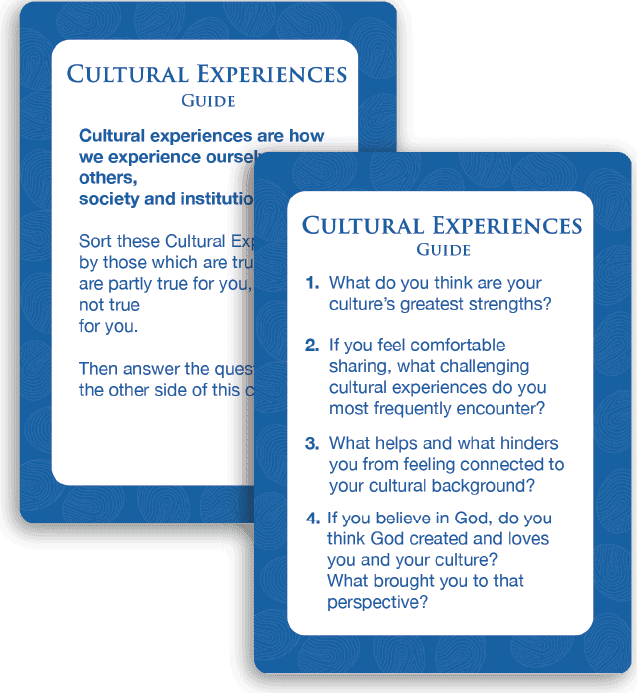I AM FROM
cultural conversation cards
Everyone has a culture, but do we feel confident to talk about it? Imagine easier and enjoyable conversations that can lead to closer relationships and spiritual transformation. These are the conversations that I Am From: Cultural Conversation Cards can help us to have!
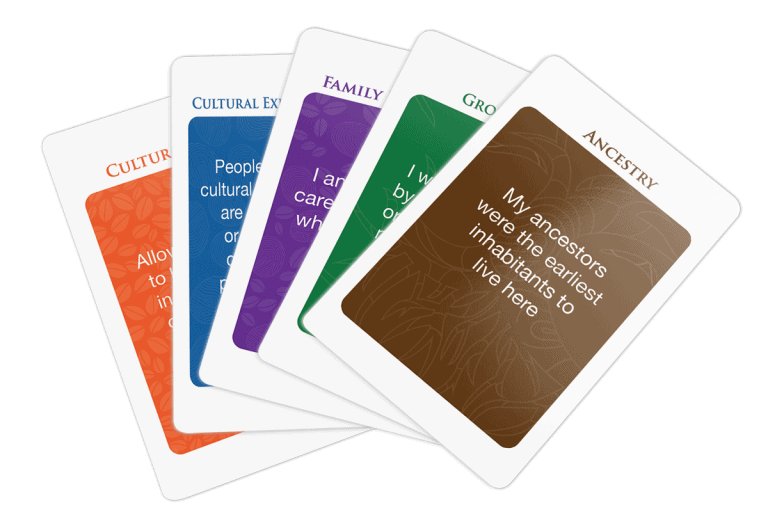
The cards are divided into 5 different categories: Ancestry, Growing Up, Family Expectations, Cultural Experiences, and Cultural Values.
Ancestry, Growing Up, Family Expectations, Cultural Experiences, and Cultural Values.
Ancestry
Ancestry has both genetic and cultural aspects. We are culturally influenced by our ancestors who have passed their cultures down to us.
Growing Up
We learn culture growing up just like we learn language, by everyday exposure and by being taught.
Family Expectations
Family expectations are the ways our families and home communities seek to influence us.
Cultural Values
A cultural value is a belief or behavior a group of people considers to be important.
Cultural Experiences
Cultural experiences are how we experience ourselves, others, society and institutions.








meet our team
I Am From was co-created by over a dozen racially, ethnically and culturally diverse women and men. We created these cards to help you better understand your own and others’ cultural journeys and experiences.
A good place to start would be at the Instructions page, which you can find on the navigation menu above. Then, you can click “View These Cards” to see the cards in each topic. You can also purchase decks of I Am From Cards from the Cru Store by clicking “Purchase” on the navigation menu above.
Got questions that aren’t covered in the instructions? View and print the PDF manual below for more assistance. You can also email us at iamfrom@cru.org.
Yes! This website is a great way to interact with every topic and all the cards. It’s easy to navigate on a computer, tablet or smartphone.
These cards can surface painful family history and personal experiences, especially for ethnic minorities/people of color. We must listen to people’s stories with empathy, respect and humility. Read the “Use With Care” section found in the online instructions or downloadable PDF.
Being a good listener is key. The last question on the Cultural Experiences topic is one way to begin to transition to a spiritual or gospel conversation. To learn more read Page 6 on the Downloadable PDF.
There are many used for these cards. Some of them include deepening relationships, building team unity, growing in greater cultural awareness, evangelism and discipleship.

